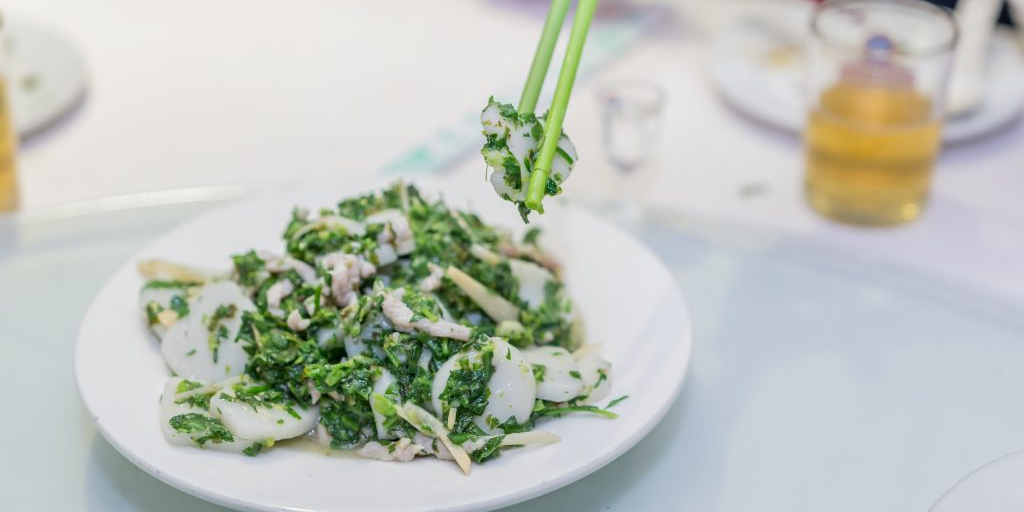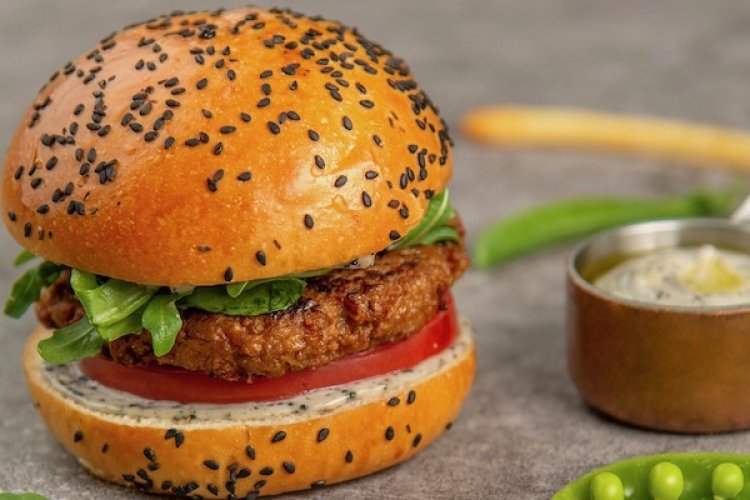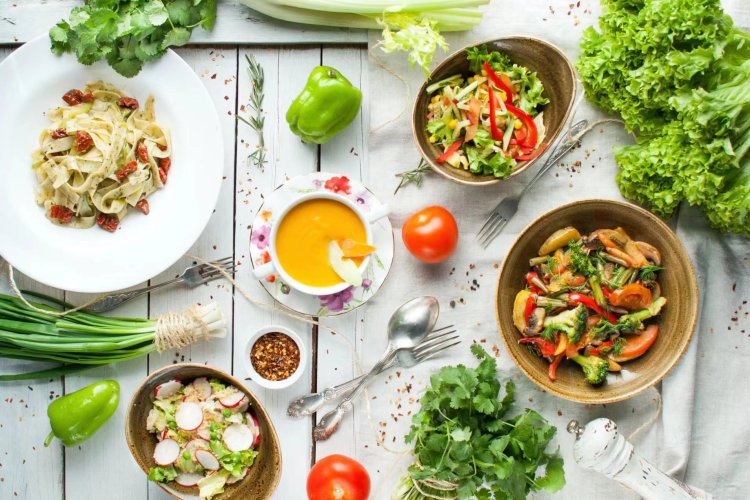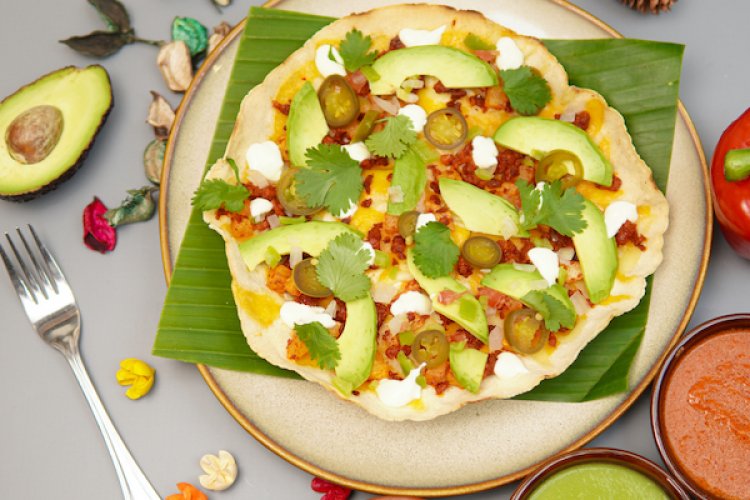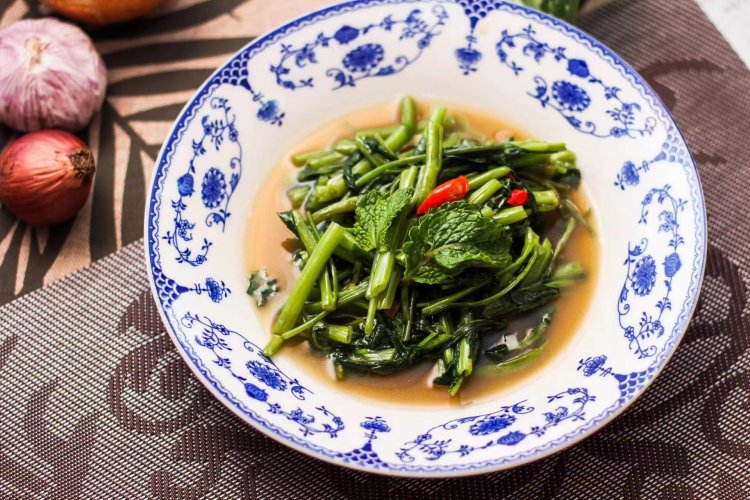不吃肉吗? Tips for Vegetarians and Vegans on How to Avoid Meat and Animal Products in Beijing
This post comes courtesy of UnTour Food Tours, who have been taking guests off the beaten path to eat shoulder-to-shoulder with locals since 2010.
Visiting Beijing as a vegetarian or vegan can be frustrating and rewarding in equal measure, depending on your outlook. While Beijing can be a fantastic city for vegetarian and vegan dining, a little knowledge and some key phrases go a long way when it comes to tracking down veggie treasures and avoiding unwittingly eating meat.
READ: Everything Needed to Survive China as a Vegetarian or a Sufferer of Food Allergies
Here are a few pros and cons of Beijing for meat-free foodies.
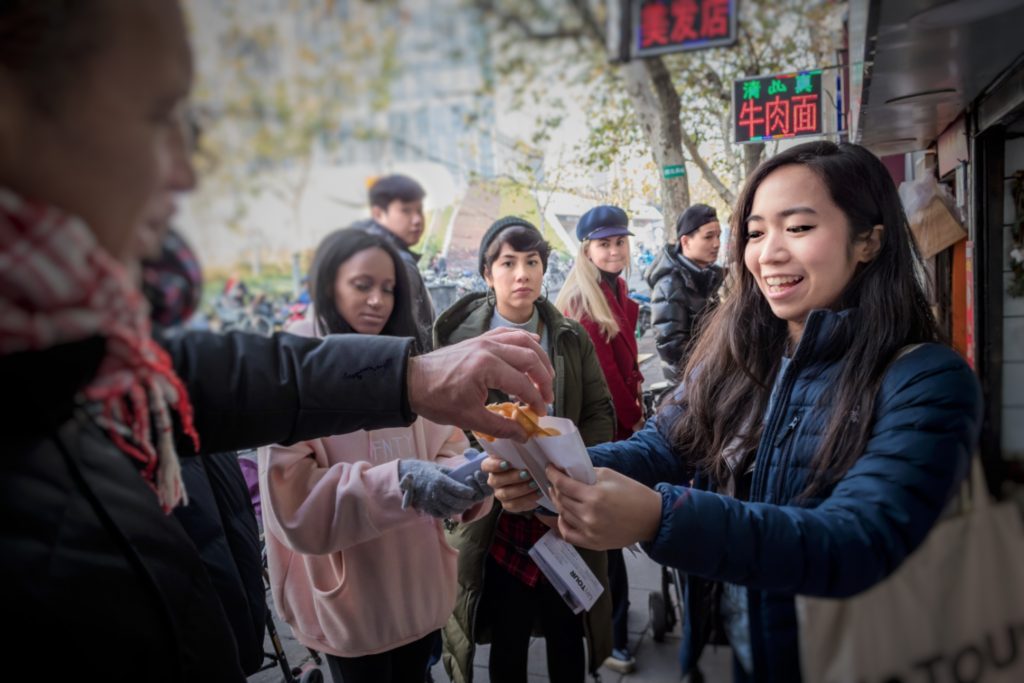
Pros:
- Variety: Local Chinese restaurants of all kinds often have just as many vegetable dishes as meat dishes, representing a wider selection of vegetable varieties than you may find overseas.
- Dedicated Restaurants: Vegetarian restaurants are relatively plentiful in Beijing. You won’t find one on every street corner, but you’re likely to find one at least one within half an hour’s walking distance wherever you are in central Beijing.
- Accommodating Waitstaff: While staff in restaurants overseas are becoming increasingly accustomed to and welcoming of meat-free diners, the willingness of many of your average Western restaurateurs to accommodate meat-free guests is yet to compare to their counterparts in Beijing. Special orders and special requests are the norm here, and staff at many restaurants will ask if you have any special dietary requirements at the time you order. If you hear a member of staff ask “yǒu jì kǒu ma?” they’re asking if you have any dietary restrictions. Read on below to find out how to answer.
Cons:
- What Constitutes Meat: There’s only one real challenge to getting your hands on authentic Beijing food while avoiding animal products. It is, however, a significant one that will take some patience and persistence to overcome. While Beijing’s restaurant staff may be eager to meet your dietary requirements, differing ideas regarding the meaning of the word meat can make ordering difficult, especially for visitors with limited Chinese language skills. The term 'meat' (肉 ròu), is usually taken literally in Beijing to mean the muscle tissue of land animals and birds, so learning to avoid other animal parts, parts of other animals, and the derivatives of both requires a far more specific and explicit approach (see handy phrases below). Additionally, understanding of vegetarianism and veganism is often limited, meaning that telling restaurant staff you’re vegetarian may be insufficient. Check out these phrases below to help successfully navigate the meat minefield.
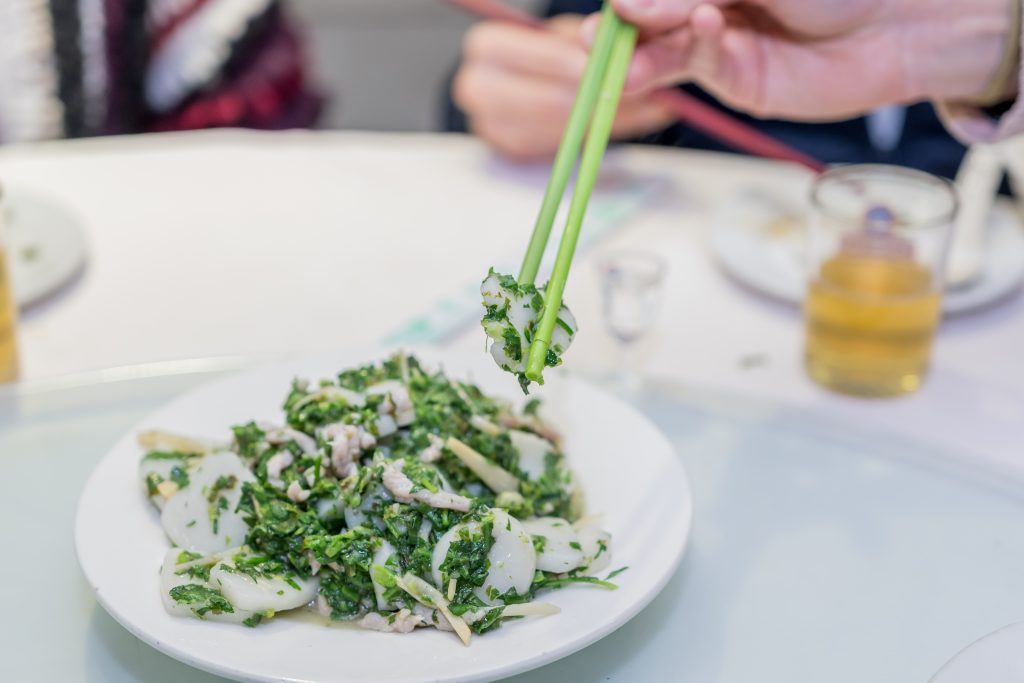
General Phrases:
我是素食主义者。 Wǒ shì sù shí zhǔ yì zhě. I’m a vegetarian.
我不吃肉。 Wǒ bù chī ròu. I don’t eat meat.
我不吃海鲜。 Wǒ bù chī hǎixiān. I don’t eat seafood.
鸡蛋可以/不可以。 Jīdàn kěyǐ / bù kěyǐ. Eggs are okay / not okay.
我对…鸡蛋/海鲜/ 花生/乳制品/麸质…忌口/过敏。 Wǒ duì… jīdàn / hǎixiān / huāshēng / rǔzhìpǐn / fūzhì… jìkǒu / guòmǐn. I am allergic to…eggs / seafood / peanuts / dairy / gluten.
你能不能做饭没有肉?Nǐ néng bùnéng zuófān méiyǒu ròu? Can you make this dish without meat?
These phrases will help you avoid most meat dishes, but on their own will not help you totally avoid meat. Pitfalls include added fish, seafood, vegetables cooked in animal oils, oyster sauce, chicken stock powder, bone broth, offal, or small pieces of meat added to vegetable dishes only for flavor. “Oh, no that’s just in there for flavor” or “That’s not meat, that’s fat” are common responses from staff when vegetarians point out the small chunks of pork fat in their vegetables.
我是纯素主义者。 Wǒ shì chī chún sù zhǔ yì zhě. I’m a vegan.
This phrase is likely to raise some quizzical eyebrows as veganism isn’t widely known or understood in Beijing. Try the key phrases below to help communicate your specific dietary requirements.
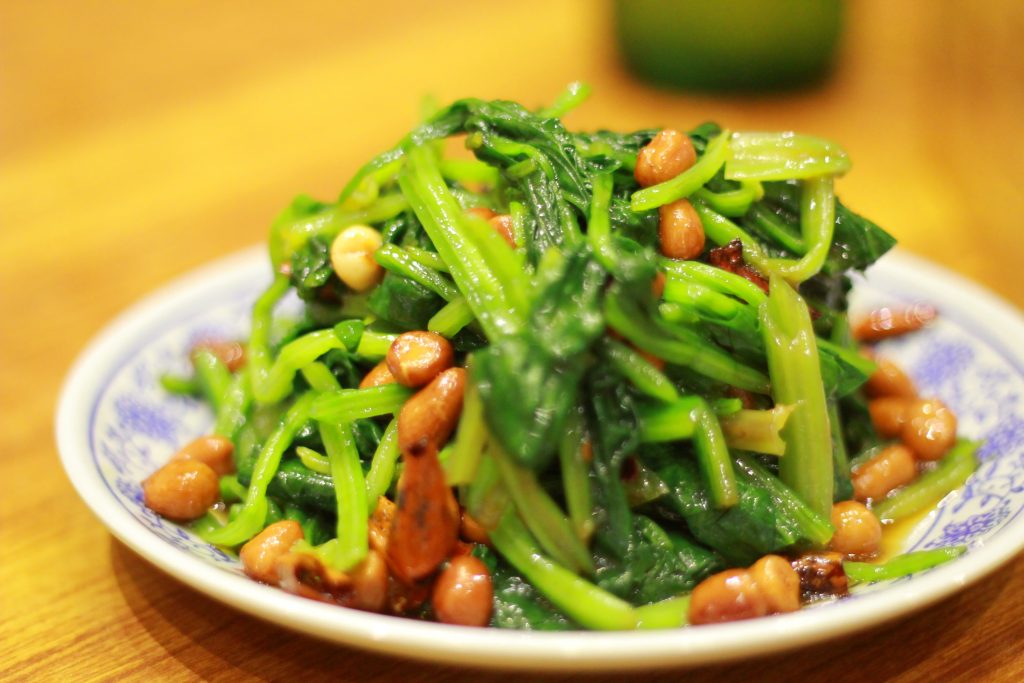
Key Phrases:
These sentences may be cumbersome for beginning Chinese users, however, they really are your best bet for avoiding animal products with confidence. Consider saving the phrases, or this page, to show to restaurant staff in Beijing.
您好!我是素食主义者。我不吃任何来自肉的食品,请麻烦不要在菜里添加任何含肉制品,海鲜,羊油,猪油,鸡精和耗油。谢谢!
Nín hǎo! Wǒ shì sùshí zhǔyì zhě. Wǒ bù chī rènhé láizì ròu de shípǐn, qǐng máfan bùyào zài cài lǐ tiānjiā rènhé hán ròu zhìpǐn, hǎixiān, yáng yóu, zhū yóu, jījīng hé hào yóu. Xièxiè!
Hello! I’m a vegetarian. I don’t any meat products. Please do not use any meat products, including seafood, animal oils or fats, chicken stock powder, and oyster sauce. Thank you!
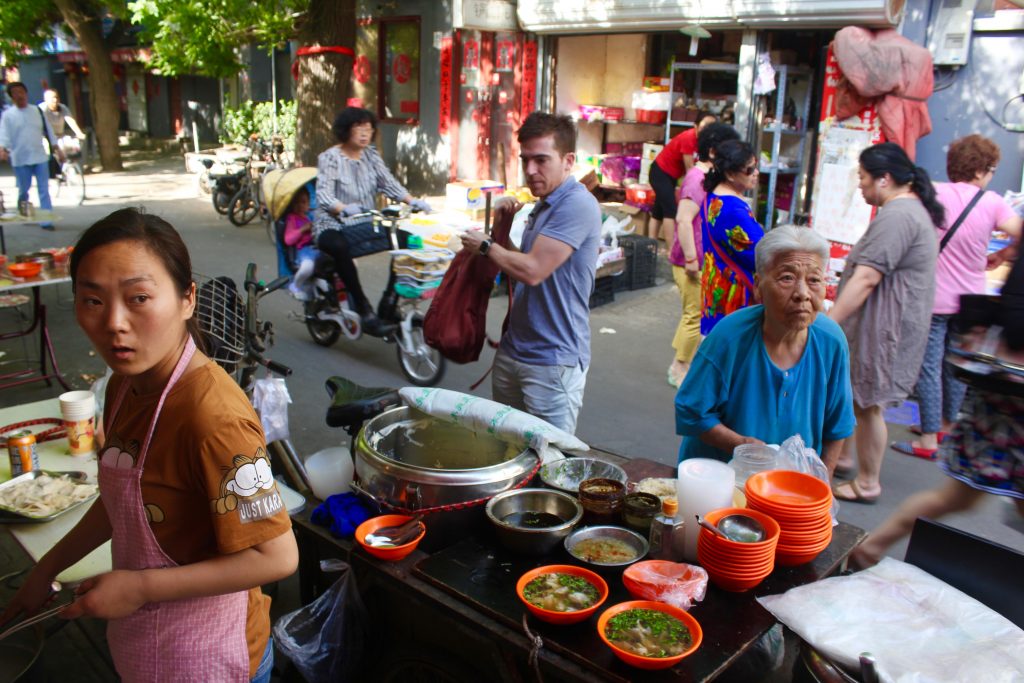
您好!我是纯素主义者。我不吃任何来自动物的食品, 请麻烦不要在菜里添加任何含肉制品,海鲜,羊油,猪油,鸡精,耗油,鸡蛋,蜂蜜和奶制品。谢谢!
Nín hǎo! Wǒ shì chún sù zhǔyì zhě. Wǒ bù chī rènhé láizì dòngwù de shípǐn, qǐng máfan bùyào zài cài lǐ tiānjiā rènhé hán ròu zhìpǐn, hǎixiān, yáng yóu, zhū yóu, jījīng, hào yóu, jīdàn, fēngmì hé nǎi zhìpǐn. Xièxiè!
Hello! I’m a vegan. I don’t eat any products that come from animals. Please do not use any animal products, including seafood, animal oils and fats, chicken stock powder, oyster sauce, eggs, honey, and dairy products. Thank you!
This article originally appeared on UnTour Food Tours' official WeChat account (ID: UnTourFoodTours). Join UnTour in Beijing, Shanghai, Chengdu, and Hong Kong to discover China's delicious food, explore authentic neighborhoods and learn the fascinating stories that make up 5,000 years of culinary history.
READ: Never See the Underside of a Table Again With These Tips on How to Drink Baijiu
Images courtesy of UnTours
Related stories :
Comments
New comments are displayed first.Comments
![]() f00dwh0re
Submitted by Guest on Sun, 02/02/2020 - 18:45 Permalink
f00dwh0re
Submitted by Guest on Sun, 02/02/2020 - 18:45 Permalink
Re: 不吃肉吗? Tips for Vegetarians and Vegans on How to Avoid...
You're a sorry judgemental piece of crap if you ask me.
Validate your mobile phone number to post comments.

